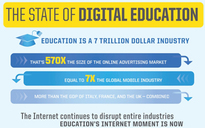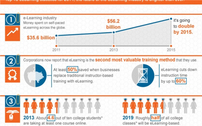| Intro by Alexandra Caufin People of all ages and social demographics are calling for action against a rising epidemic of mental illness across North America. This year, one in four Americans 18 and older will struggle with a diagnosable mental illness and many will not seek medical care (almost half of all Canadians who suffer from depression or anxiety have never seen a doctor about it). Without awareness, intervention and access to care, the cycle persists: mental illness is the number one reason for disability in North America and suicide remains the fourth leading cause of death in adults, more common than death by diabetes or stroke. | "Our online learning environment affords a safe and comfortable space for employees, conducive to the sensitive discussions that orbit mental health awareness." |
The Canadian Mental Health Association (CMHA) is stepping up as a first responder, announcing the launch of a three-part digital course Managing Mental Health in the Workplace. These kind of programs have been heralded as game changers––the difference between someone identifying mental illness and recovering, rather than allowing the disorder to spiral out of control affecting everything from family life to social life to professional life.
CMHA’s recent release discusses the exciting new online project and zeroes in on thought-provoking articles, infographics and a TED Talk on how technology can and should be leveraged to combat mental illness. We couldn’t help but share!
CMHA’s recent release discusses the exciting new online project and zeroes in on thought-provoking articles, infographics and a TED Talk on how technology can and should be leveraged to combat mental illness. We couldn’t help but share!
Released by Canadian Mental Health Association earlier this month:

Here at the Canadian Mental Health Association (CMHA), we are passionate about using technology to improve mental health awareness by providing better access to mental health training. With the fantastic results we’ve seen from initiatives like Bell Let’s Talk, the CMHA is proud to be taking our Managing Mental Health in the Workplace course digital.
In partnership with ScholarLab, a leading innovator of online education in North America, we’ve developed an interactive online course loaded with helpful, perspective-shifting modules on mental health. Plus, our platform is accessible anywhere and adaptable for your individual employees.
In partnership with ScholarLab, a leading innovator of online education in North America, we’ve developed an interactive online course loaded with helpful, perspective-shifting modules on mental health. Plus, our platform is accessible anywhere and adaptable for your individual employees.
How does it work?
Our professionally-filmed video lectures really give the feel of an in-person instructor-led course. But with pre-recorded content, you can pause and conduct discussions or backtrack to review major points and learning outcomes. Employees can register individually (or in groups for special rates) and begin the course right away. The system automatically tracks progress and organizes the modules so you and your employees always know where to pick things up again.
What are the benefits?
Is this the right choice for my organization?
Well, the Research Institute of America reported that online learning can advance knowledge retention by 25%-60%, especially because your employees will have the opportunity to revisit the training as needed. Plus, in terms of efficiency, a study conducted by Brandon Hall Research found that when compared to conventional in-classroom learning, online education requires 40%-60% less employee time.
If you’re curious about the benefits of online learning and want to learn more, don’t hesitate to get in touch. We’ve assembled a selection of helpful articles, studies and infographics, below.
Resources
Our professionally-filmed video lectures really give the feel of an in-person instructor-led course. But with pre-recorded content, you can pause and conduct discussions or backtrack to review major points and learning outcomes. Employees can register individually (or in groups for special rates) and begin the course right away. The system automatically tracks progress and organizes the modules so you and your employees always know where to pick things up again.
What are the benefits?
- By taking this course digital, CMHA is reaching out to employers on a national level.
- Studies show that implementing just-in-time learning results in time and cost savings, enhanced engagement and constructive changes in behaviour. Your employees won’t have to take time off or wait for an in person, one-time-only session. Consider this: a difficult mental health situation has arisen in the workplace. With the format of our online modules, your human resources team can log in and access critical information exactly when they need it.
- Our online learning environment affords a safe and comfortable space for employees, conducive to the sensitive discussions that orbit mental health awareness. Employees will have privacy and flexibility in exploring their own perception of mental health which they may not be comfortable doing in a conventional classroom.
Is this the right choice for my organization?
Well, the Research Institute of America reported that online learning can advance knowledge retention by 25%-60%, especially because your employees will have the opportunity to revisit the training as needed. Plus, in terms of efficiency, a study conducted by Brandon Hall Research found that when compared to conventional in-classroom learning, online education requires 40%-60% less employee time.
If you’re curious about the benefits of online learning and want to learn more, don’t hesitate to get in touch. We’ve assembled a selection of helpful articles, studies and infographics, below.
Resources
 Why Improving Workplace Mental Health is Good Business from The Globe and Mail |  Edutech Gallops into the Year of the Horse: Five Online innovations We'll see in 2014 from the ScholarLab Research Desk |  Reshaping the learning experience with online education. TED Talk by Anant Agarwal, President of edX. EdX is a non-profit online initiative founded by Harvard and MIT. |
Source List
National Institute of Mental Health - Leading Cause of Death (2007)
National Institute of Mental Health - Health and Education
Canadian Mental Health Association - Fast Facts








